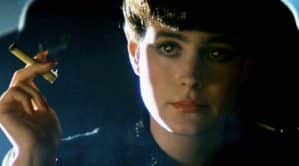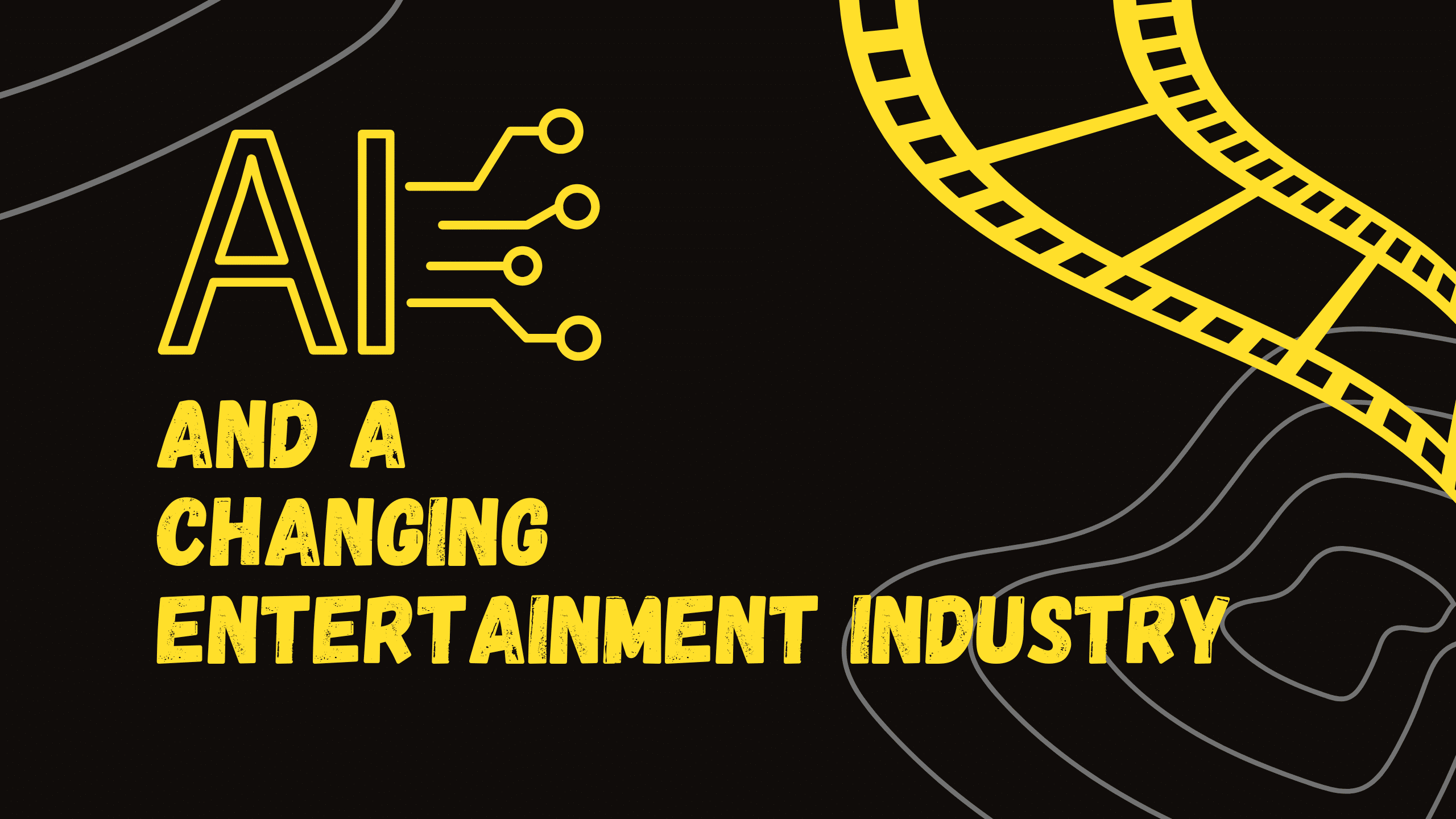The world is buzzing with new technologies, and one of the biggest movers at the moment is new and improved artificial intelligence, which is an amazing thing for people wanting more convenience and efficiency in their lives (and who doesn’t?).

While we’re not quite a “Blade Runner” universe with replicant AI yet, artificial intelligence is getting more fine-tuned day by day. One of the fastest adopters of AI’s most recent abilities are studios, looking to utilize the tech everywhere from writer’s rooms to post-production.
In the history of the film industry, there have already been multiple massive industry shifts. An example of these monumental shifts includes “The Jazz Singer” busting into theaters in 1927, forever changing the industry with sound. “Talkies” were seen as a fad, but popularity quickly changed the medium to where sound and synced dialogue became the norm.
More recently, in the 90’s, the industry experienced a rift that was at first considered “just a fad” as well; the switch from physical film to digital filmmaking. This change made movie-making more available to anyone with a digital camera. More movies, and less money spent to make them; as physical film cost a large chunk of many production budgets. The pros vastly outweighed the cons for the digital dawn of film.
The industry has survived all of these changes and more, often changing drastically to keep up with what audiences want; but also, maybe more importantly, with studio budget sheets.
We seem to be in the midst of another extreme change in the industry today, with AI swooping in and becoming capable of streamlining certain aspects of the production process. Readily available AI can offer writers insight into what story arcs, characters, and even dialogue will do best with a targeted audience. Generative AI programs like Chat GPT, or more advanced AI can even write out whole scripts based on a creator’s input. AI can generate marketing content, provide insight based on past content, and so much more, all in seconds; also at a significantly cheaper price point than paying a human to do these jobs. While parts of the entertainment industry are struggling with economic pressure, cutting costs and time sounds like a perfect solution for studios.
StoryFit is a company utilizing AI to help creatives in the industry choose the best scripts to produce based on content, marketability, and audiences. The job of reading through endless stacks of script submissions is a daunting task- but AI makes the sorting process a more efficient one. In a recent interview, Monica Landers, the CEO of StoryFit acknowledges “…the peculiarity of using AI to evaluate audience connections with narratives or characters.” She goes on to explain how she feels that “…storytelling is humanity”, and that StoryFit is used to enhance the process versus taking it over. The company has seen massive success in action, as the driving factor behind popular shows like “The Queen’s Gambit”, and “The Last of Us”, amongst others.
“…the peculiarity of using AI to evaluate audience connections with narratives or characters.” She goes on to explain how she feels that “…storytelling is humanity”, and that StoryFit is used to enhance the process versus taking it over. The company has seen massive success in action, as the driving factor behind popular shows like “The Queen’s Gambit”, and “The Last of Us”, amongst others.
So much content coming out of Hollywood now is based on past content, thus it works very well with AI; which is operated entirely based on inputs of previously created content and data. The insights and content provided by generative AI are almost perfectly suited for the production process.
The efficiency, both time-wise and financially, is undeniable for studios; but there are many industry workers that fear the future of their job security because of the inherent effects AI has for the industry.
In May of this year, the Writer’s Guild of America (WGA) entered a strike against studios. This strike was induced largely due to low residual checks coming from streaming platforms; but it was also heavily influenced by the increased use of generative AI systems in the workplace. The strikers aim to regulate AI’s uses in the industry, encouraging the use of AI to enhance the process versus replacing the human labor involved in the filmmaking process for the purpose of cost-cutting.
low residual checks coming from streaming platforms; but it was also heavily influenced by the increased use of generative AI systems in the workplace. The strikers aim to regulate AI’s uses in the industry, encouraging the use of AI to enhance the process versus replacing the human labor involved in the filmmaking process for the purpose of cost-cutting.
Complaints from writers regarding AI’s uses are coming from outside of the film and TV industry as well. Author Jane Friedman went viral after noticing that books and posts are being published online under her name, but not by her. The content and material mirrors her own writing, but reads as though generated by AI. She hasn’t received any compensation for the works published, and it begs the question, “who owns AI generated work?”; especially when all AI generated content is largely based on a human artist’s previously created work.
Following the beginning of the WGA strike, and the timely release of the “Black Mirror” episode “Joan is Awful”; where Salma Hayek and other’s images are used in an AI generated television series; the Screen Actors Guild (SAG-AFTRA) also joined the strike against studios, fearing the future of generative AI in film.
The Alliance of Motion Picture and Television Producers (AMPTP) proposed “a groundbreaking AI proposal that protects actors’ digital likenesses for SAG-AFTRA members”, which heavily instigated the strike.
According to members of SAG-AFTRA, the proposal in no way “protects the actors digital likenesses” but would protect the studio in taking a digital scan of background actors. The
proposal in no way “protects the actors digital likenesses” but would protect the studio in taking a digital scan of background actors. The
proposed paying the actors for one day of labor, and then they could utilize the actor’s digital likenesses through CGI as many times as the
studio desired in the future- with no further pay. For anyone who’s seen “Joan is Awful”, this dystopian idea is close to becoming a reality if not halted.
Many entertainment industry professionals working in art fields fear the current,
unregulated state of generative AI in the direction it’s being used for film and television. If AI continues at the rate it is going, more and more artists fear they will be unable to survive off their craft. Many hope to see copyright and licensing regulations on AI created content, like those found for sampling in the music industry.
The future of the film and television industry has been uncertain before, but strikes have been known to bring necessary change for the hard working members of the industry. Ultimately, generative AI is here to stay, and will continue to improve- it is just a matter of improving the use of AI in a way that benefits the entertainment workforce as well as the people thinking of the bottom line.
MediaTech Institute’s “Digital Film and Video” program aims to impart its students with a variety of experiences to pull from when entering the industry as professionals. We pride ourselves in producing graduates that stay employed in this competitive, ever-shifting industry; by educating them with the experience needed to keep up and excel in the production environment.
Take a tour
Are you ready to turn your PASSION into a PROFESSION? Daily tours are available from 10am-5pm and we welcome walk-ins. Each tour will last approximately 45 minutes.
If you’d like to book a tour in advance, you can book by calling the campus directly or by using the scheduling buttons to book online and choose a time that works best for you.

